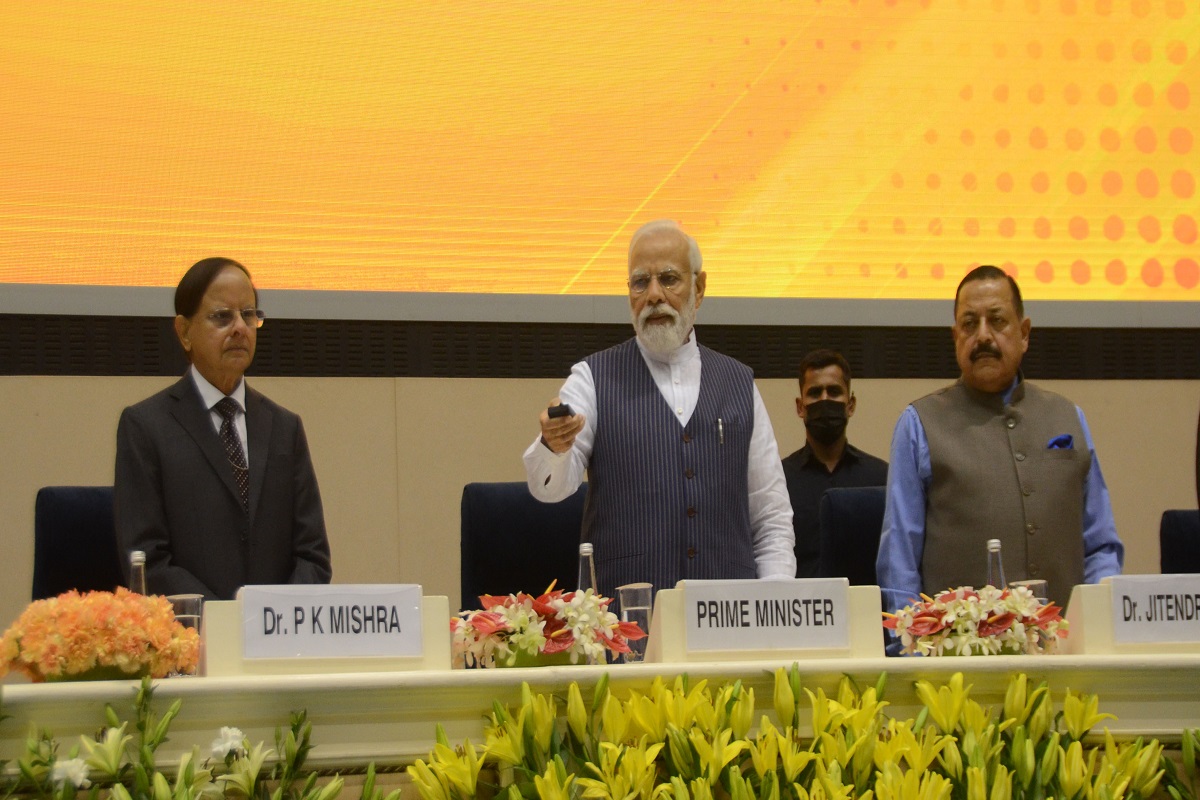Prime Minister Narendra Modi on Friday said if India is to realise the goal of Viksit Bharat (developed India), its government “system” must support aspirations of every citizen and replace decades of its negativity by positivity to help people realise their dreams.
The prime minister was addressing civil servants on the occasion of the 16th Civil Services Day. He conferred Prime Minister’s Awards for Excellence in Public Administration on the occasion.
Advertisement
He said government schemes can look nice on paper but if there is no last-mile delivery of their benefits, the targeted objectives will not be realised. It is well-known that there were four crore fake gas connections and four crore fake ration cards under care of the “system” that existed some years back, he said.
Drawing attention on how the system had accumulated negativity earlier, the prime minister said it allowed one crore “imaginary” women and children draw benefits from schemes of the Women and Child Development Ministry, while the Ministry of Minority Affairs was giving scholarships to 30 lakh “non-existing” youths.
A massive eco-system was engaged in corruption with the help of crores of fake identities, which existed just on paper and were never born, he said. Modi said the system has been reformed now with the help of the civil servants, who worked hard to transform it completely.
“As a result, government funds totalling nearly Rs 3 lakh crore have been prevented from going into undeserved hands, and for this the civil servants deserve to be congratulated. The money is now being spent on the welfare of the poor and making their lives easier,” he added.
He said an important feature of democracy was that it allowed different political parties to exist with their different ideologies. But, he said, “It is the duty of the bureaucracy to analyze whether a political party is making use of taxpayers’ money for the benefit of their own organisation or the nations.”
“If it is using the money to create a vote bank or making the lives of the citizens easier; if it is advertising itself with the government funds or making the people aware; if it is appointing its own party workers in various organizations or creating a transparent process for recruitment is to be seen by the bureaucracy,” he said.
Recalling the words of Sardar Patel about bureaucracy being the steel frame of India, the prime minister said it is time it lived up to his expectations and prevent the dreams of the youth from getting crushed, along with taxpayers’ money getting misused.
“Today’s challenge is not about efficiency, but in figuring out how to find and remove deficiencies,” he said and recalled the time when on the pretext of deficiency, even small aspects were attempted to be controlled.
“Earlier, the thinking was that the government will do everything, now the thinking is that the government will work for everyone,” the prime minister said highlighting the efficient use of time and resources to serve everyone. “Motto of the government is ‘Nation First-Citizen First’, today’s government’s priority is prioritizing the deprived,” he said.
Highlighting the government’s initiative to do away with the protocol of hierarchy, the prime minister said he constantly meets secretaries, assistant secretaries, and trainee officers. He said that the country is prepared for takeoff on the path of faster development due to the work done in the last nine years. The bureaucracy is the same but different results are being achieved today.
The Prime Minister told the government servants that there are two approaches to life, one, getting things done, and two letting things happen. The first is an active attitude and the second reflects a passive attitude. People with faith in getting things done take ownership in a proactive manner and become the driving force of their teams.
“By this burning desire to bring change in the lives of the people you will be able to leave a memorable legacy. You will not be judged by what you have done for yourself but by what changes have you brought in the lives of the people,” the prime minister told the Karmyogis.
Therefore, he said, “good governance is the key. People-centric governance solves problems and gives better results”. He gave examples of Aspirational districts that are performing better than other districts on many development parameters due to good governance and the efforts of energetic young officers.
By focussing on people’s participation, a sense of ownership is created among the people and this people’s ownership ensures unprecedented results, he said. He illustrated this with examples of Swacch Bharat, Amrit Sarovar and Jal Jeevan Mission.









